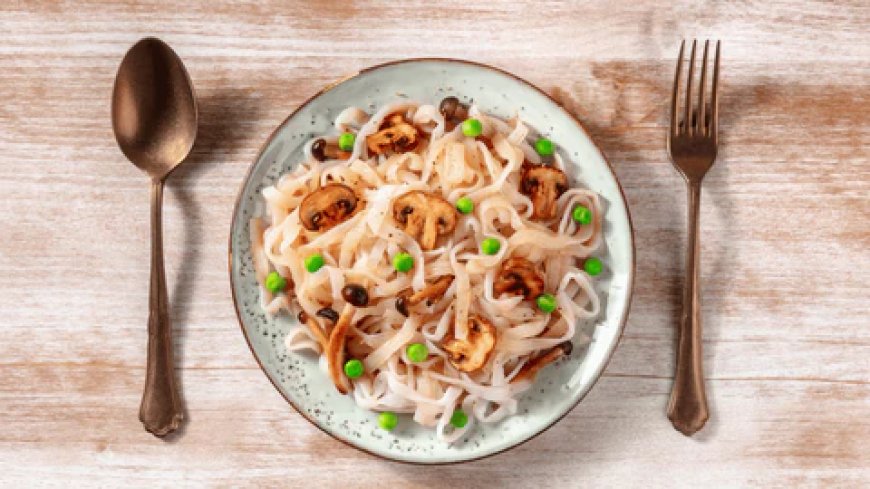The Pros and Cons of Low Calorie Ready Meals: Are They Right for You?
Explore the benefits and drawbacks of low-calorie ready meals, including their convenience, nutritional value, and if they're the right choice for you.

In today’s fast-paced world, convenience is king, especially when it comes to food. Low-calorie ready meals have surged in popularity, offering quick, portion-controlled solutions for those aiming to lose weight or maintain a healthy diet. These pre-packaged meals often claim to be the perfect balance between taste and nutrition. But are they the right choice for everyone? Let’s explore the advantages and disadvantages of low-calorie ready meals to help you make an informed decision.
The Pros of Low-Calorie Ready Meals
1. Convenience and Time-Saving
One of the biggest benefits of low-calorie ready meals is their convenience. In a world where people juggle work, family, and other commitments, spending hours in the kitchen isn’t always feasible. Ready meals provide a quick, no-prep solution, allowing you to enjoy a low-calorie dish in minutes.
For busy professionals or those with unpredictable schedules, these meals can prevent unhealthy takeout choices or skipped meals.
2. Portion Control
Overeating is a significant obstacle for many trying to manage their weight. Low-calorie ready meals come in pre-measured portions, ensuring you don’t consume more than necessary. This is particularly helpful for individuals who struggle with portion sizes or calorie counting.
For example, meals made with ingredients like konjac—a plant-based food low in calories—are becoming increasingly common. Konjac is rich in fiber and provides satiety without adding extra calories, making it a staple in some ready meals.
3. Nutritional Awareness
Most low-calorie ready meals come with detailed nutritional information, which can help you make informed dietary choices. If you’re tracking macros or monitoring specific nutrients, such as protein or fiber, these labels simplify the process.
4. Variety and Flavor
Gone are the days when ready meals meant bland and uninspiring options. Today, there’s a wide variety of flavors and cuisines available, catering to diverse tastes. Whether you’re craving a low-calorie curry or a konjac-based stir-fry, the options are plentiful.
5. Weight Management
For those aiming to lose weight, low calorie ready meals can serve as a helpful tool. By keeping calorie intake consistent, they simplify the process of staying within a daily caloric budget.
The Cons of Low-Calorie Ready Meals
1. High Levels of Processing
While low-calorie ready meals are convenient, many are highly processed. They may contain additives, preservatives, or artificial ingredients to extend shelf life and enhance flavor. Regular consumption of processed foods can have negative health implications, such as increased inflammation or higher sodium intake.
2. Nutritional Imbalance
Although these meals are low in calories, they’re not always nutritionally balanced. Some may lack essential nutrients like healthy fats, vitamins, or fiber. Over-reliance on such meals could lead to deficiencies over time.
For instance, while konjac is an excellent low-calorie ingredient, meals that overemphasize it without including sufficient protein or vegetables may not be wholly satisfying or nutritious.
3. Cost
Low-calorie ready meals can be expensive compared to preparing similar meals at home. Over time, relying on pre-packaged options might strain your budget. For families or individuals on a tight financial plan, cooking fresh meals can be a more economical approach.
4. Environmental Concerns
The packaging for ready meals often contributes to plastic waste, which is an environmental concern. While some brands are moving towards eco-friendly packaging, many still rely on single-use plastics that aren’t biodegradable.
5. Taste and Satisfaction
While the variety in low-calorie ready meals has improved, they may not always match the taste and satisfaction of freshly prepared dishes. Some people find these meals lack the depth of flavor or texture they enjoy in homemade food.
Also Read: How Konjac Help Individuals Transform Their Diets
Tips for Choosing the Right Low-Calorie Ready Meals
If you’re considering incorporating low-calorie ready meals into your routine, here are a few tips to maximize their benefits while minimizing the downsides:
-
Check the Ingredients List
Look for meals with recognizable, whole-food ingredients. Avoid options with excessive additives, artificial flavors, or high sodium levels. -
Prioritize Balanced Meals
Choose meals that include a mix of protein, healthy fats, and complex carbohydrates. For example, a meal with konjac pasta, lean chicken, and roasted vegetables would be a great choice. -
Watch Portion Sizes
While portion control is a benefit, some meals may offer servings that are too small to be satisfying. Pair them with a side salad or steamed vegetables to increase volume without significantly raising calorie count. -
Compare Costs
If you’re on a budget, consider supplementing ready meals with home-cooked options. This can give you the convenience of ready meals while saving money in the long run. -
Limit Frequency
Relying on low-calorie ready meals occasionally, rather than daily, can help you balance convenience with nutritional needs.
Are Low-Calorie Ready Meals Right for You?
The answer largely depends on your lifestyle, dietary goals, and preferences. For individuals seeking convenience, portion control, and quick options for busy weeknights, low-calorie ready meals can be an excellent addition to their routine. However, it’s essential to remain mindful of their limitations, such as potential processing and cost.
If you’re someone who enjoys cooking or values whole, unprocessed foods, these meals might not be the ideal primary option. Instead, consider preparing fresh dishes using ingredients like konjac noodles or whole grains, which provide similar calorie benefits while allowing for greater customization and nutrition.
Ultimately, balance is key. By combining ready meals with fresh, home-cooked options, you can enjoy the best of both worlds: convenience and wholesome nutrition.
What's Your Reaction?



























